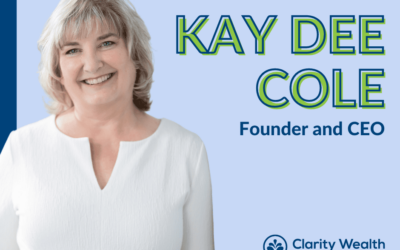In many cases, financial planning is a family matter. You want to make sure you’re set for the future, but also that your kids and grandkids are prepared for the long-term.
Setting up a custodial account can be a savvy move for adults who want to either teach their kids to invest with their own money or for parents to gift their assets and help their children under the age of 18 to become financially independent.
But there are many considerations – and consequences – to weigh before opening an account. Let’s dive in.
UGMA and UTMA Accounts
The two types of accounts you can use to set up an investment account or to gift assets to your youngster are called a Uniform Gift to Minors Act (UGMA) or Uniform Transfers to Minors Act (UTMA). Which one you use will depend on your state of residence. Most states – with the exception of Vermont and South Carolina – have phased out UGMA accounts and now only offer UTMA accounts.
UTMA accounts allow the donor to gift most security types, including bank deposits, individual securities and real estate. UGMA accounts limit gifts to bank deposits, individual securities and insurance policies. Here are some points to consider:
1. Contribution Limits
There are no contribution limits. Parents, grandparents, other relatives, and even non-related adults can contribute any amount to an UGMA/UTMA at any time. Note that the federal gift tax exclusion is currently $15,000 per year ($30,000 for married couples). Gifts up to this limit do not reduce the $1 million federal gift tax exemption.
2. Viable Expenses
The assets gifted are irrevocable. Once you establish an UGMA or UTMA, the assets you gift cannot be retrieved. Parents can set themselves up as the account’s custodian(s), but any money they take from the account can only be used for the benefit of the custodial child.
Note that basic “parental obligations,” such as food, clothing, shelter, and medical care cannot be considered as viable expenses to be deducted from the account.
3. Taxes
Taxes are due – potentially for both you and your child. Some parents may initially find custodial accounts appealing to help them reduce their tax burden, but it’s not that simple.
The first $1,000 of unearned income is tax exempt from the minor child. The second $1,000 of unearned income is taxable at the child’s tax rate, which could trigger the need for you to file a separate tax return for your child. Any amounts over $1,900 are taxable at either the child’s or the adult’s tax rate, whichever is higher. Note that state income taxes are also due, where applicable.
4. Full Account Access
Once your child reaches the age of trust termination recognized by your state of residence (usually 18 or 21), he or she will have full access to the funds in the account.
Be warned that your child could have different priorities for the assets in the account than you do. Money that parents had earmarked as paying for college tuition could instead be used to purchase a sports car or fund a suspect business venture. This is where you need to make sure your child understands the account and how it works. Considering asking them to attend annual meetings with your adviser.
5. Financial Aid Considerations
Money in these accounts could impact financial aid considerations. For financial aid purposes, custodial assets are considered the assets of the student. If the assets in the account could jeopardize your child’s chances of receiving financial aid, speak to your tax and/or financial professional. One of your options could involve liquidating the UGMA/UTMA and establishing a 529 account.
Before making any decisions about establishing a custodial account, be sure to talk to your tax and financial professionals.
Plan for the Future with Clarity
Clarity Wealth can help you plan a financial future for your kids and grandkids. Click here to connect with a Clarity team member today.
Source/Disclaimer:
This communication is not intended to be tax advice and should not be treated as such. Each individual’s tax situation is different. You should contact your tax professional to discuss your personal situation.



